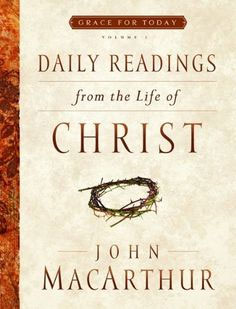Devotionals
April 23 - Jesus on Vows and Oaths
A devotional by Grace To You for reading on April 23rd
“‘Again, you have heard that the ancients were told, “You shall not make false vows, but shall fulfill your vows to the Lord.” But I say to you, make no oath at all, either by heaven, for it is the throne of God, or by the earth, for it is the footstool of His feet, or by Jerusalem, for it is the city of the great King. Nor shall you make an oath by your head, for you cannot make one hair white or black’” ( Matthew 5:33 –36).
In the regular business of life, people use vows and oaths—at marriage ceremonies, in the courtroom, executive oaths of office. Because human nature is prone to lying and distrust, God has provided for proper use of oaths (cf. Heb. 6:16). In describing who may enter God’s presence, the psalmist says one requirement is that the person be one who “swears to his own hurt and does not change” (Ps. 15:4b; cf. vv. 2–3). Such a person’s word is more important than his or her welfare.
God Himself has issued oaths in the past (Gen. 22:16–17; cf. Pss. 89:3, 49; 110:4; Jer. 11:5; Luke 1:73 ). He did so to impress upon people the special importance or urgency of a promise. As Hebrews notes, “Since He could swear by no one greater, He swore by Himself” (6:13). Christ often used the expression “truly” or “truly, truly” (e.g., Matt. 5:18, 26; 6:2, 5, 16; John 1:51 ; 3:3, 5; 5:19, 24). As with the Father’s oaths, the Son’s use of “truly” did not make those statements any more trustworthy than any other pronouncements. The “truly” teachings underscored the importance of certain teachings. Jesus even used an oath before the high priest Caiaphas that He was indeed God’s Son (Matt. 26:63–64).
In view of the special nature of divine oaths, we should “make no oath[s] at all”—in other words, no frivolous ones that would compromise our truthfulness and integrity (cf. Pss. 119:29, 163; 120:2).
Ask Yourself
Could your conversation be improved with less embellishment and exaggeration? Can your word stand on its own two feet?
From Daily Readings from the Life of Christ, Vol. 1, John MacArthur. Copyright © 2008. Used by permission of Moody Publishers, Chicago, IL 60610, www.moodypublishers.com.
Additional Resources- Download our app The Study Bible!
- John MacArthur’s complete sermon archive
- The MacArthur Study Bible
- The complete MacArthur New Testament Commentary series
The content above belongs exclusively to Grace To You - Daily Readings and is provided on HopeLife.org for purely non-profit purposes to help extend the reach of their ministry.
Copyright 2017 by John MacArthur. Used by permission from Grace to You.



